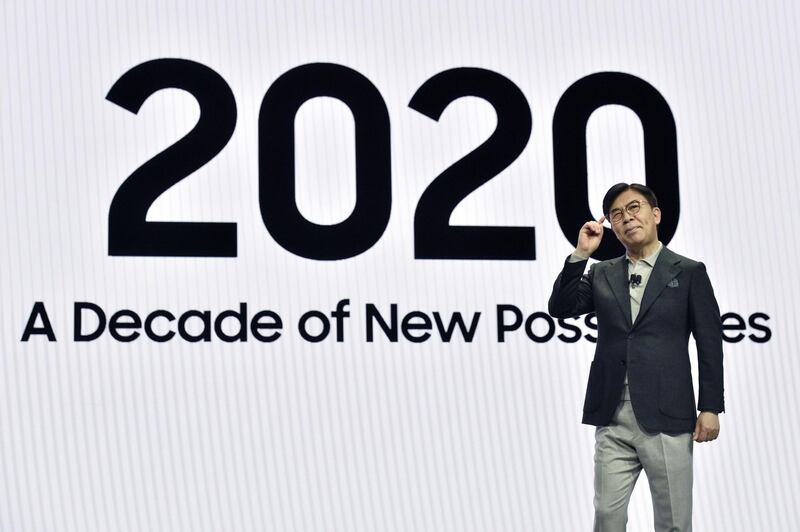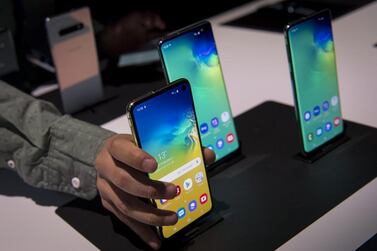The annual Consumer Electronics Show is all about the latest and greatest gadgets. Or is it?
This year, a change was in the Las Vegas air: companies are innovating beyond the device. Instead, useful technology is being embedded more than ever into everyday items — from your home’s front door to the pillow you rest your head on at night.
Among the more than 4,400 companies exhibiting their wares, of course there has been an onslaught of headsets, virtual assistants, robots and the latest in TVs and smartphones. But a takeaway from the bleeding edge of CES 2020: we are approaching a post-device world.
Samsung, for one, claims someday soon we will be able to ditch the keyboard. Its virtual alternative, called Selfie Type, turns any flat surface into a keyboard by using an artificial intelligence (AI) algorithm and a device’s front-facing camera.
The new technology uses the camera — as on a smartphone or tablet — to monitor finger movements as one ‘types’ and converts it to written text on the device’s screen. The virtual keyboard does not require any equipment other than the device being used to gauge typing. The programme is still being tested, according to Samsung, but the days of keyboards — relied upon since the invention of the typewriter in 1868 — may be numbered.
The devices for those who snore range from nasal strips and mouth guards to face-covering masks with an electrical plug.
CES attendees were introduced to the Motion Pillow, which makes the humble pillow ‘smart’ and may help snorers do away with their contraption of choice. A sleeper’s head position and breathing are monitored throughout the night and the pillow changes shape, through built-in air bags, to change the position of the head. By adjusting a sleeper’s position, the inventors claim the pillow can help improve airflow and therefore reduce snoring.
Meanwhile, Bosch pitched its alternative to a car’s sun visor with its Virtual Visor. The company said the system uses AI to locate the position of a driver’s eyes and then darkens that exact spot on the windshield where the sun’s glare is hitting their eyes.
One of the most highly anticipated product launches coming from Sony is its latest flagship gaming console, the PlayStation 5. While it did unveil a logo for the PS5, the Japanese consumer tech giant took its stage time to show off a concept car.
Kenichiro Yoshida, Sony’s president and chief executive, emphasised the importance of mobility to the company — a more abstract concept compared to its gaming and smartphone pedigree — as its first vehicle was unveiled on stage.
“It’s not an exaggeration to say that mobile has been the mega-trend of the last decade,” he said. “I believe the next mega-trend will be mobility.”
To that end, Amazon said it would start integrating its voice assistant, Alexa, into cars this year, meaning drivers will no longer have to connect their smartphone through bluetooth or a cable to access music or voice command services. General Motors, Volkswagen, Rivian and Lamborghini are the car makers so far taking part.
South Korea’s LG is using AI to make one’s front door way more helpful. Its Thinq Home smart door uses sensors to optimise temperature and airflow depending on the number of people in a room and can verify visitors through facial recognition. When exiting, a display on the door provides information on weather and traffic.
Taken together, it is a door that does away with the need for keys, thermostats or checking a smartphone as one heads out for the day.








